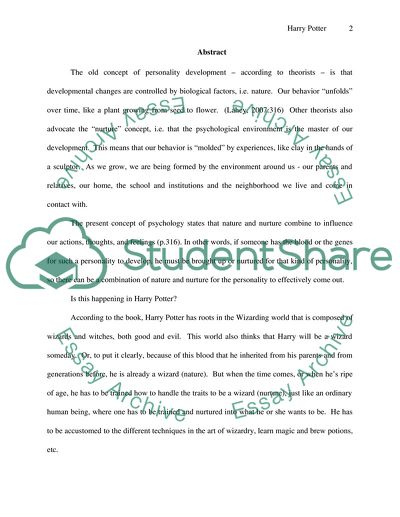Cite this document
(“Is Harry Potter Who He Is Because of Nature or Nurture Essay”, n.d.)
Is Harry Potter Who He Is Because of Nature or Nurture Essay. Retrieved from https://studentshare.org/visual-arts-film-studies/1708693-nature-or-nurture
Is Harry Potter Who He Is Because of Nature or Nurture Essay. Retrieved from https://studentshare.org/visual-arts-film-studies/1708693-nature-or-nurture
(Is Harry Potter Who He Is Because of Nature or Nurture Essay)
Is Harry Potter Who He Is Because of Nature or Nurture Essay. https://studentshare.org/visual-arts-film-studies/1708693-nature-or-nurture.
Is Harry Potter Who He Is Because of Nature or Nurture Essay. https://studentshare.org/visual-arts-film-studies/1708693-nature-or-nurture.
“Is Harry Potter Who He Is Because of Nature or Nurture Essay”, n.d. https://studentshare.org/visual-arts-film-studies/1708693-nature-or-nurture.


